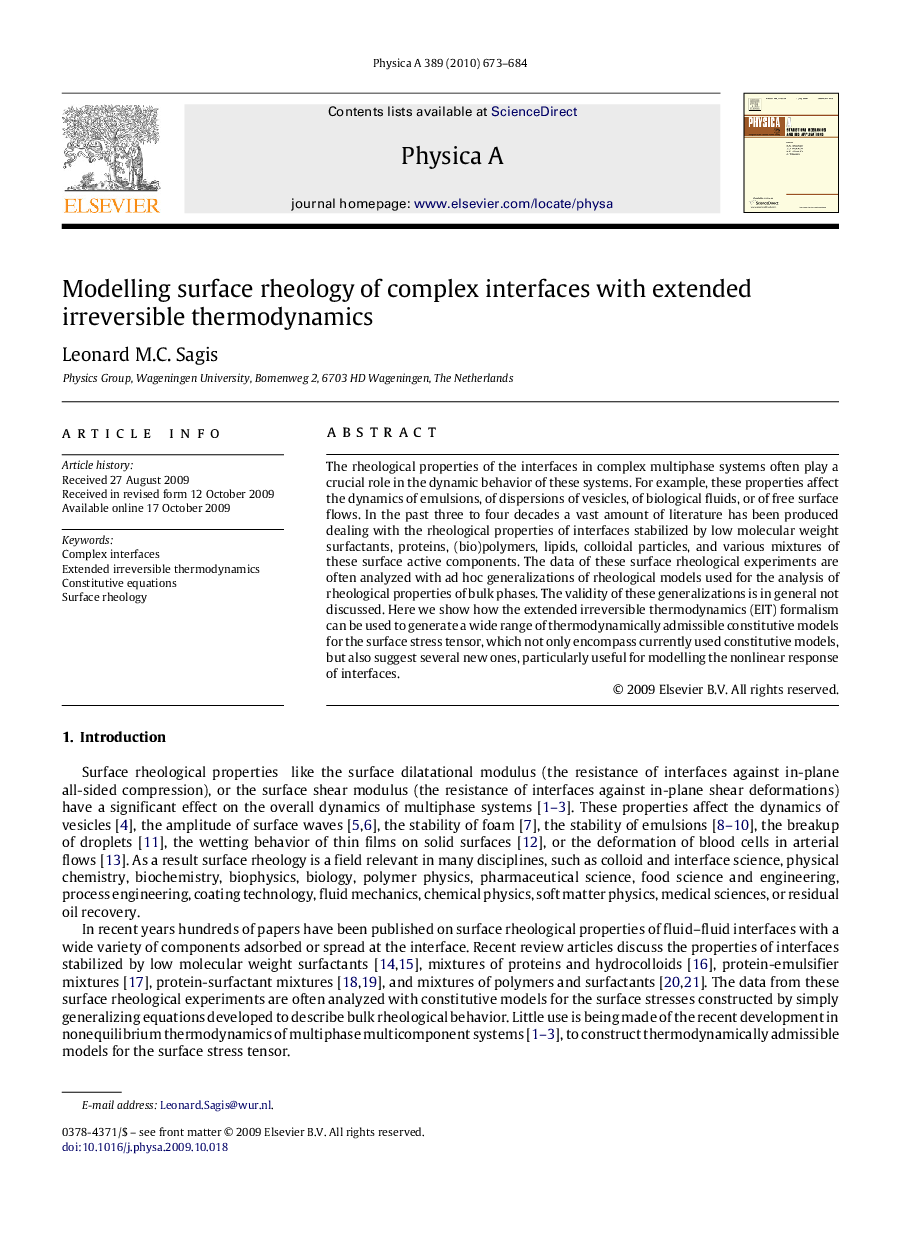| Article ID | Journal | Published Year | Pages | File Type |
|---|---|---|---|---|
| 979205 | Physica A: Statistical Mechanics and its Applications | 2010 | 12 Pages |
The rheological properties of the interfaces in complex multiphase systems often play a crucial role in the dynamic behavior of these systems. For example, these properties affect the dynamics of emulsions, of dispersions of vesicles, of biological fluids, or of free surface flows. In the past three to four decades a vast amount of literature has been produced dealing with the rheological properties of interfaces stabilized by low molecular weight surfactants, proteins, (bio)polymers, lipids, colloidal particles, and various mixtures of these surface active components. The data of these surface rheological experiments are often analyzed with ad hoc generalizations of rheological models used for the analysis of rheological properties of bulk phases. The validity of these generalizations is in general not discussed. Here we show how the extended irreversible thermodynamics (EIT) formalism can be used to generate a wide range of thermodynamically admissible constitutive models for the surface stress tensor, which not only encompass currently used constitutive models, but also suggest several new ones, particularly useful for modelling the nonlinear response of interfaces.
